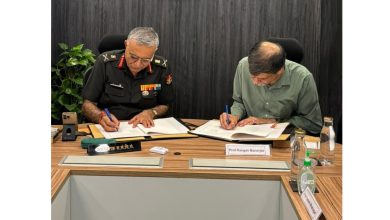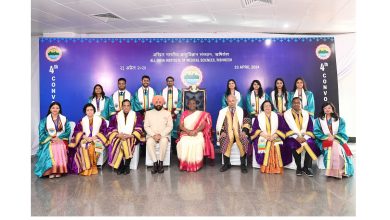
50 frontline individuals will be trained in COVID-related care and treatment protocols
Aster Hospitals, Bangalore commenced an advanced life support training in paediatrics with a special focus around covid in Children. This course is for healthcare workers to educate and train 50 frontline individuals in COVID-related care and treatment protocols.
The customised training schedule varying from two days intensive workshop to six weeks self-paced course will include 50 nurse trainees and rapid response team members in the first batch who will be taught about basic and advanced life support, identification of a sick child, COVID specific – signs, symptoms, clinical course, and early warning scores for hospitalized patients under monitoring, etc. Additionally, the healthcare group is also conducting simulation-based training for nurses to prepare them for the third wave of the COVID-19 virus and beyond.
Aster Hospitals, Bangalore has collaborated with over five other hospitals to train the healthcare workers and create a model workforce that is equipped with all the skills and knowledge to fight any medical crisis.
Under the simulation-based training, the hospital provides hands-on exposure to the professionals on clinical case scenarios, skill training, team dynamics, and human factors, escalation of care matrix, and grief counselling. In the long run, Aster Hospitals Bangalore is also planning to adopt technologies like AR (Augmented Reality) and VR (Virtual Reality) that can enable simplification of learning through gamification of concepts and can ensure continuous and remote learning in a pandemic like scenario.
Dr Sujatha Thyagrajan, Senior Consultant – Paediatrics & Paediatric Intensive Care, Aster Hospitals, Bangalore said, “A curriculum has been developed that involves knowledge enhancement via accessible e-learning modules with pre-test and post-test MCQs so that the learner can work at their pace and gains the basic understanding of caring for an ill/sick child. The videos of key stabilization procedures and interventions are developed for the trainee to learn at their pace. Management of oxygen devices, resuscitation and ventilator management modules are made easy to understand and apply a blended method of learning via simulation and mentorship. A few scenarios are conducted via simulation of the commonly seen paediatric emergencies and their management. We have set up a system to practice in person as well as via remote location with structured debriefing to ensure effective reflective learning. Based on the performance of each of the learners, they will be graded as Levels 1/2/3 and such assessments will facilitate the rational use of the workforce at the bedside and ensure patient safety.”
She added, “We will have to separate the newborns born to COVID mums in a separate space and train adequate doctors and nurses caring for them. Therefore, with these modules, we are preparing to take special care of new mothers in cases of prematurity, cardiac involvement, and other varied antibody-mediated effects akin to MIS-C. Furthermore, we are also enrolling nurses from local nursing homes for training and are planning to expand our reach through AR and VR modules.”
Dr Harish Kumar, Consultant – Paediatrics & Paediatric Intensive Care, Aster Hospitals, Bangalore, said: “We are expecting registrations from across the state. Upskilling training programmes will allow healthcare professionals to work outside of their current role and will help in creating a larger pool of talent that can be called upon in critical areas of care and pandemic-like situations.”




